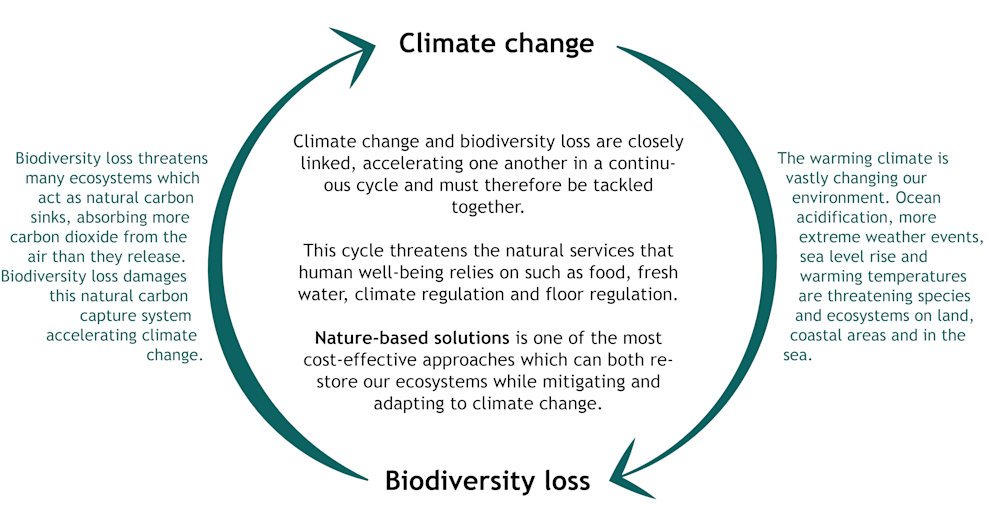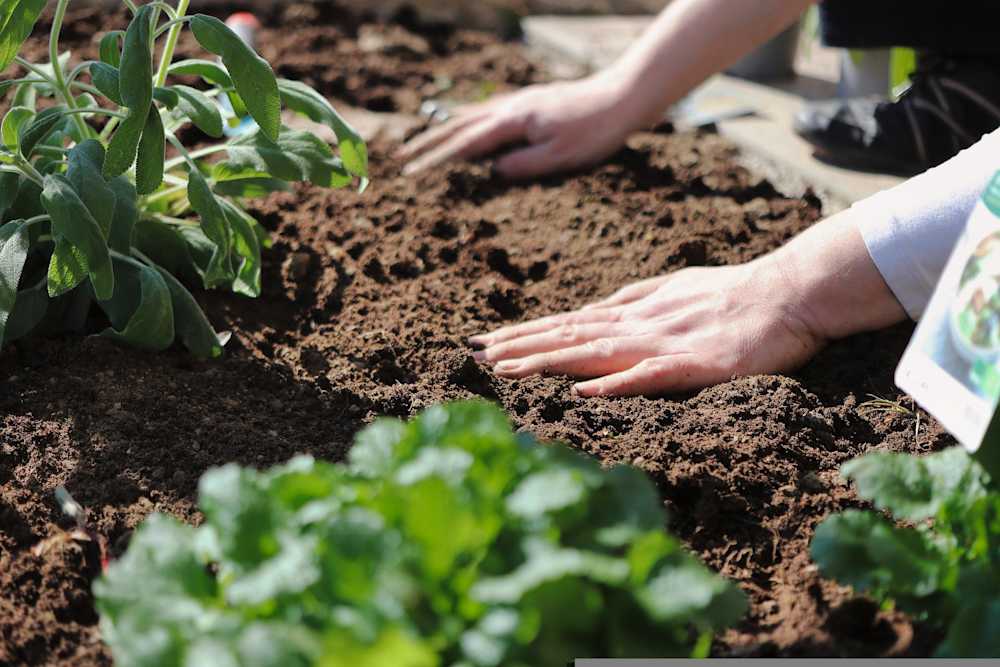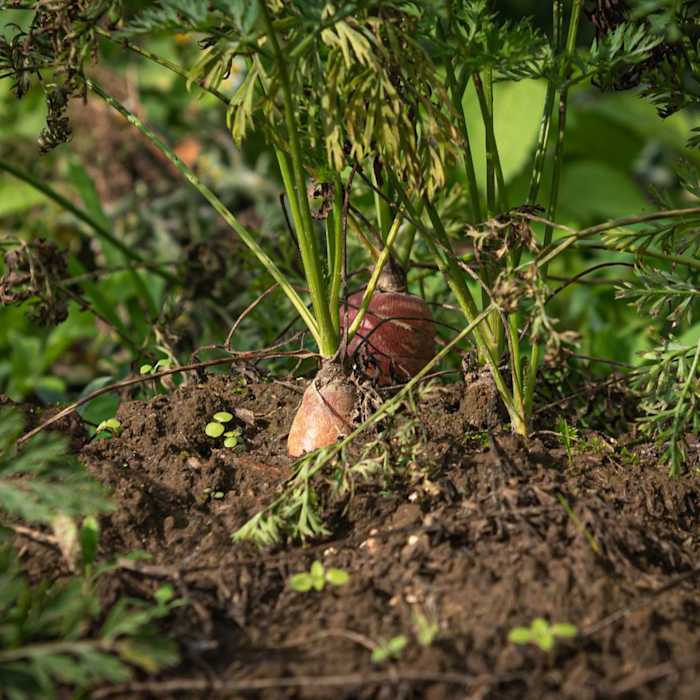Investing in the transition to a net-zero food system
Regenerative Agriculture as a Nature Based Solution for Decarbonizing Food Value Chains
It is less than a year since the UN’s Intergovernmental Panel on Climate Change (IPCC) told us that we are at imminent risk of hitting 1.5 degrees within the next 20 years, calling it a “code red for humanity”. Its 2022 report also highlights that climate impacts are already more widespread and severe than expected. Alarms were raised as well at COP26 on the urgent need to slow deforestation, becoming clear that the two environmental crises—a changing climate and biodiversity loss��—are indistinguishably intertwined.

We have a powerful tool at our disposal to address both crises: nature. Nature-based solutions (NbS) could help achieve 37% of necessary emissions reductions, while protecting biodiversity and ensuring human well-being. It is no wonder therefore that NbS popularity amongst environmentalists, development agencies, carbon investors and net-zero corporates is growing. Amongst the many interventions under the NbS umbrella, regenerative agriculture is probably one of the most promising, as it has the potential to be applied by farmers across the world. Regenerative practices on farms such as intercropping, no- or reduced-tilling and agroforestry improve soil health – and healthy soil is the largest carbon pool on the planet.

A SHIFT TO REGENERATIVE AGRICULTURE IS CRUCIAL FOR DECARBONIZING FOOD SYSTEMS
However, scaling regenerative agriculture requires a radical transformation of our food system, from one centred solely on maximising yield and productivity to one that pursues economic, environmental, and social outcomes. The good news is that incentives are getting aligned, with some of the largest global food and beverage companies committing to net-zero emissions by 2050, which necessarily includes reducing emissions in their value chains – technically defined as scope 3 emissions. Scope 3 emissions (emissions from the supply chain — including the production of purchased goods, transport, waste disposal, etc.) can account for more than 90% of total emissions for an average packaged food or beverage product, so a credible net-zero strategy will need to include climate-change mitigation interventions at farm level given that ~70% of total emissions in food systems come from land use change and farming activities. By supporting and investing in regenerative practices in their value chains, there is a real opportunity for food corporations to be catalysers of impact at scale. The road map to a net-zero global food system could be initiated by a handful of committed players with targeted investments: four food systems alone (beef, milk, rice and maize) are responsible for ~70% of total emissions from agriculture and the global food system is dominated by a group of large food and beverage brands.
AND COLLABORATION HAS NEVER BEEN MORE IMPORTANT
Public and private investors can leverage these efforts by investing in NbS projects that support farmers regenerating adjacent lands that no longer produce food (e.g., restoration of degraded grassland, peatland, and mangroves), creating a protective ecosystem that helps to prevent floods, boost biodiversity and improve water productivity. The carbon stored could finance these landscape projects, by producing high-quality carbon offsets that command a higher price in the voluntary carbon market.
But, to truly decarbonize their value chains, food companies will have to look for allies closer to home: their competitors. Most scope 3 emissions from food and consumer goods come from value chains with little visibility beyond mid-stream traders, where upstream farmers are not exclusive to a single food company. Hence the achievement of net-zero commitments will demand collaboration between food companies within supply chains. The Landscape Finance Lab is proposing joint investments by food companies at a landscape level as a potential solution to the problem. Supporting an entire landscape (imagine a Colombian region producing coffee) so that it can strike a balance between environmental, social, national, and commercial development needs, while accounting for carbon impacts, would allow collaborating corporates to claim a reduction of emissions proportional to their investment. It would also allow them to leverage public and green funding aimed at sustainably developing the region. As with most precompetitive collaborative efforts, the main issues are technical, designing the incentives and rewards to minimise freeriding and maximise attributable outcomes. But normally, innovation follows a need. Gold Standard, working closely with the Greenhouse Gas Protocol, is developing promising approaches to the allocation of outcomes and impacts that can be applied, including where traceability is challenging. If successfully implemented, the roadmap to net-zero food systems will not only play a critical role in solutions for the climate crisis and biodiversity preservation, it will also generate billions in new business opportunities, as farmers and corporates look for investments to transition to regenerative practices. In any case, there is no time to waste. Only innovation and collaboration at scale will give us a good chance to turn our current state of “code red” into something much greener.

Introducing Regenerative Agriculture The ultimate goal of regenerative farming is to reduce the environmental impacts of agricultural practices, including livestock. The most damaging impacts of conventional agriculture include greenhouse gas emissions, soil erosion and water pollution. While regenerative agriculture is different for every farm, location and crop, it has a consistent principle of minimising losses and restoring nutrients, water and carbon in the soil. Regenerative Practices such as reduced-tilling, cover crops, intercropping, crop diversity and rotating livestock, restore soil matter and improve soil health, delivering more nutritious food and sequestering carbon.

Mauricio Benitez
Mauricio Benitez is responsAbility’s Food Systems Lead. He oversees the development and implementation of new investment solutions related to climate finance, sustainable food and natural capital and is currently working on a climate impact investment solution to help address key challenges of the global food system. He joined responsAbility in 2009, after 10 years working in Latin America and Eastern Europe, supporting small banks to improve credit risk management and strategy. Mauricio is a Swiss-Bolivian Economist and holds an MEcon degree from the University of the Western Cape and an MA in Development Management from the Ruhr Universität Bochum.